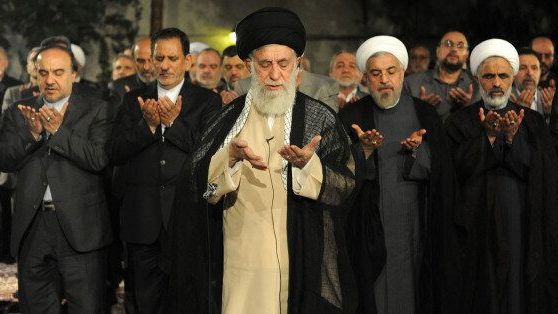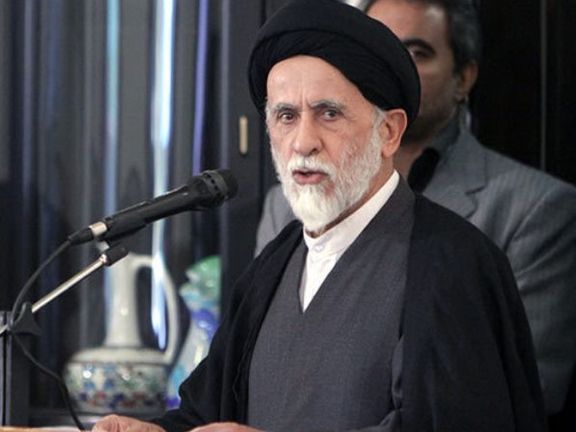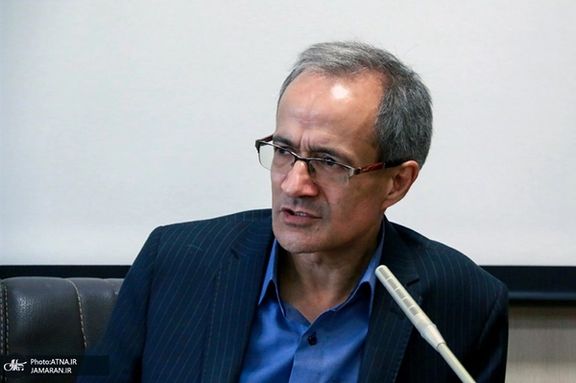Pundits Say Iran’s Hardliners Block Change And Reform

A relatively moderate politician says Iranians no longer believe in the reformist-conservative dichotomy that has been the mainstay of regime politics for 25 years.

A relatively moderate politician says Iranians no longer believe in the reformist-conservative dichotomy that has been the mainstay of regime politics for 25 years.
Referring to mass disqualification of well-known reformist figures in previous elections, Ghavami told Entekhab news website in Tehran that the people are unlikely to vote for a few low-key reformists who are usually allowed to run for the parliament.

"However, as a lot of people will take part in the elections anyway, they are likely to cast blank ballots in the 2024 parliamentary election," he added in the March 24 interview. However, Ghavami pointed out that the country's biggest problem in the new Iranian year that started on March 21 will be the back-breaking high cost of living.
“Reformists are those politicians and public figures who have long argued that Iran needs change and reforms, but have believed that in its current form the Islamic regime can evolve and become a more democratic political system. Opposing them are ‘principlists’ or conservatives and hardliners who traditionally did not believe in liberalization.
In the 2020 parliamentary and 2021 presidential elections, the Guardian Council that vets candidates according to the constitution blocked almost all reformists from putting forth their candidacy. As a result, all three government branches are now dominated by hardliners loyal to Iran’s authoritarian ruler Ali Khamenei.
Ghavami pointed out the "non-competitive" nature of elections in Iran and said the regime will hold next year’s elections anyway regardless of the people's reluctance to turn out to vote.
In another comment, Ghavami said that Iran needs reforms in the area of foreign policy, but the current administration of President Ebrahim Raisi is incapable of changing course. Probably out of political correctness, he did not mention that foreign policy is controlled by Khamenei.
Rising prices, Ghavami said, are likely to cause a political, economic and social catastrophe in the coming months. Positive change in Iran is unlikely as long as the government cannot solve its domestic and international problems and fails to respond to the demands Iranians have put forward during their protest.
Meanwhile, in an interview, academic Mohammad Javad Gholamreza Kashi said most of Iran's problems are due to the fact that hardliners in the government and parliament have refused to recognize the idea of people's participation in politics.

He likened Iran's current situation to a case of childbirth during which the hardliners are determined to kill the baby before it is born. This comes while the society is looking for a natural birth, he said.
Kashi, an assistant professor of law and political science reiterated that while the people of Iran have pluralist demands, the hardliners continue beating on the drums of unilateralism. Explaining this in sociological terms, Kashi said that hardliners are adamant to solve a modern problem with an old and outdated solution.
He traced back Iranians demands to the 1905 Constitutional Revolution that although led to modernism in the form of new buildings, roads, railways and airports after less than half a century, its demands for the rule of law, freedom and justice were never met.
In the meantime, while the people have embraced modernism, Iran's new rulers are the same religious fundamentalist they used to be at the beginning the 20th century. "The baby is still not born," Kashi said, adding that "the people are running out of patience and demand a Cesarean surgery while the hardliners are likely to pull a new trick out of their sleeves."